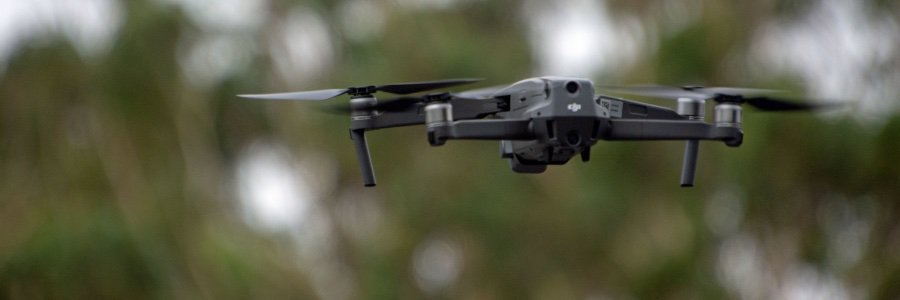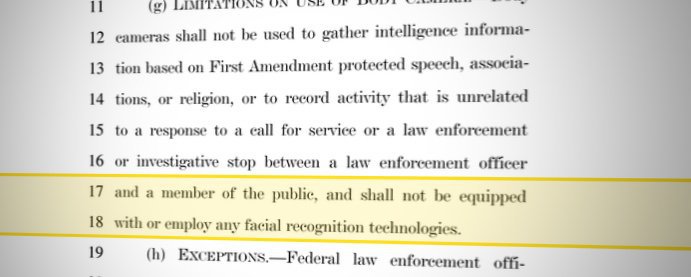‘Tis the shopping season!
While we trawl the Internet for cyber steals, most of us have learned to expect online retailers to track our clicks and share our shopping and purchase data.
We may, however, have higher expectations for how government handles our private information and movements. We may expect government actors to respect our privacy. We may hope they give a wide berth to our civil rights and that they implement new policies with fairness and accuracy in mind.
We generally don’t expect the information we give in confidence to be used to turn a profit. For the most part, we don’t expect that government agencies are building databases of our cars’ locations or selling the data we give the DMV. We don’t anticipate that they’ll intercept our phone calls or surveil us from overhead unbeknownst to us. And, yet, everyday they do.
MuckRock has used public records and a growing community of concerned citizens to investigate these growing uses and abuses of technology by police departments, schools, and other government agencies. Contributing to greater transparency only takes a minute, just long enough to let us know that you care about knowing what’s happening in your town.
Look at the ways technology is being adopted by government agencies across the country and howMuckRock is using freedom of information to help you learn more.
Sales
We often give to the government information we wouldn’t just hand out to any old organization, but in a data-as-currency environment, some public entities are turning its form fodder into cold cash.
In particular, Departments of Motor Vehicles from Vermont to California have netted millions from the sale of drivers’ information. Private investigators have been among the most popular customers, though other major companies and data firms, like Deloitte, Choicepoint Service Inc., and LexisNexis, are all known customers.
Algorithms
Governing bodies throughout the U.S. are turning to automated decision making systems and other artificial intelligence to help them work. Machine learning can help make operations more efficient and services more equally and more effectively dispersed. However, it can just as easily take incomplete data and turn it into bad readings and harmful policies, reinforcing biases and labeling faulty calculations as the rule.
MuckRock has been exploring the adoption of artificial intelligence-based software and predictive decision making systems, which are being used in the spectrum of government processes.
AI-based systems have plenty of potentially good uses. They can be used to identify high-cost homeless individuals and high abuse-risk family situations, potentially targeting rescue and resource efforts more effectively.
Automated systems also have plenty of potential - and actual - negative uses that require policies and limits. Crime data, for example, created by racially-biased police departments may be used to institutionalize overpolicing in certain areas. Facial recognition has seen incredible inaccuracies but is still used in criminal justice proceedings. Assessment tools may assign individuals an estimated risk of reoffending based more on demographics that personal characteristics. Location data from cell phones could be used to measure high foot traffic areas but also offers ways to track individuals throughout their days.
As cities are looking to get “smart” and get connected, these technologies are raising serious questions about how data can be gathered, stored, and analyzed while being respectful of individual privacy and civil rights.
You can learn more via our project Algorithmic Control, a collaboration with Rutgers Institute for Information Policy & Law (RIIPL).
Automated license plate readers
In collaboration with the Electronic Frontier Foundation, MuckRock has filed hundreds of public records requests for materials on how police are collecting and sharing the locations of vehicles nationwide using automated license plate readers (ALPR).
Regardless of whether there is any legal justification, law enforcement has been sharing license plates and their locations with agencies across state lines, including private actors like repossession companies.
Read more about the project Street-level Surveillance and submit your town to help found out if its use ALPR on your streets.
Facial recognition
Images and information you’ve shared with the Department of Motor Vehicles are likely in a collection of photos, including others shared voluntarily or unknowingly online, used for facial recognition analysis. Maybe the cache was created by the Federal Bureau of Investigation. Maybe a private company bought your photos to build training databases or new software. Most licensed drivers didn’t expect that their likenesses would be used in this way, and yet they are.
These databases are probably being accessed by your local police department. The extent of law enforcement access to facial recognition has yet to be mapped. In addition to its affront to expectations of privacy, the technology has been generally unregulated, even as studies have challenged its accuracy and compliance with constitutionally-mandated due process rights.
MuckRock has joined with Open the Government to learn more about how these technologies are being adopted and deployed. You can learn more, including how to file your own FOI on facial recognition, via our project Police Surveillance: Facial Recognition Use in Your Backyard and by contributing to our Assignment below.
Cell site simulators
A passcode is one way for the government to get into your phone’s activities. But wouldn’t it be simpler if the phone just sent it to these agents directly?
Government operators have been able to intercept phone data through the use of cell site simulators, also known as IMSI catchers or Stingrays. The extent of law enforcement capture of cell phone information remains unknown, since agencies have been secretive about their use.
Documents released by the Boston Police Department as part of the project The Spy in Your Pocket showed the agency had purchased a KingFish system. The ACLU has also tracked use of the technology.
Submit your city below, and we’ll send a request to the local police department asking about its use of cell site simulators.
Drones
You wouldn’t want a stranger’s flying camera to be legally able to ignore your fence and video tape your backyard. Would you want the police to have that ability?
While there are general privacy and safety rules in place about the appropriate uses of unmanned aerial vehicles (UAVs), these are increasingly being tested and stretched to allow for commercial flights and law enforcement uses. It may not be long before your local police department is conducting regular overhead patrols, as with the Persistence Surveillance System used by Baltimore.
When MuckRock first launched the Drone Census in 2012, police departments were just getting their hands on the aerial equipment, but now companies seem poised to release their own fleets and more widespread air surveillance may be just a little bit behind.
You can help us learn more about where drones are being deployed by submitting your town to our Assignment.
What else should we consider?
See another technology or cyber-topic that could use the FOIA treatment? We want to know about the new technologies, programs designed to outsource data analysis to the robots, and government experiments in AI. Let us know what you know or want to know!
You can see all of our open Assignments here.
Image via flickr licensed under CC BY 2.0




